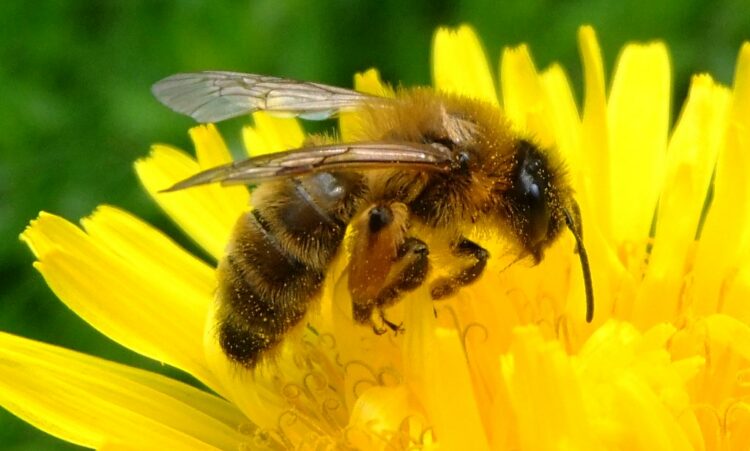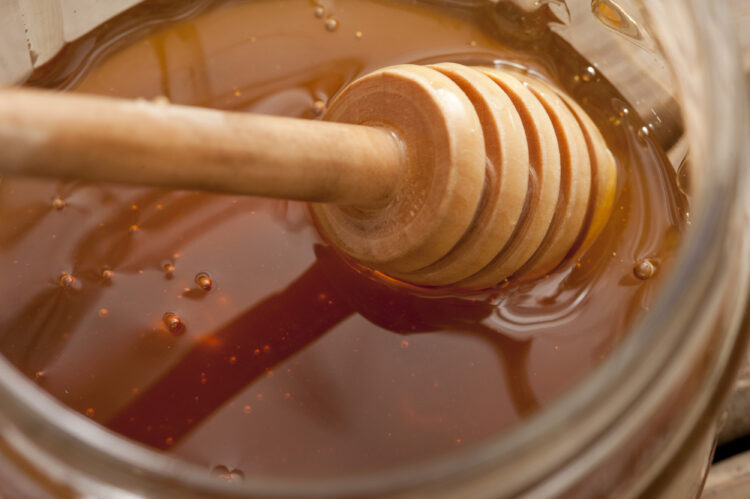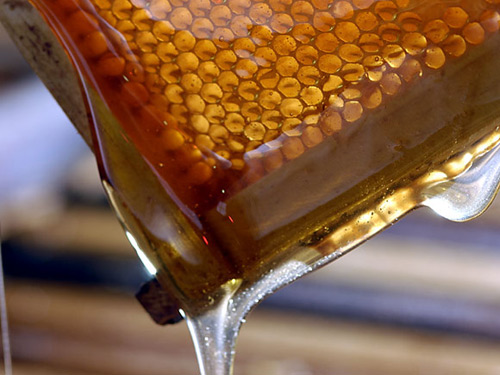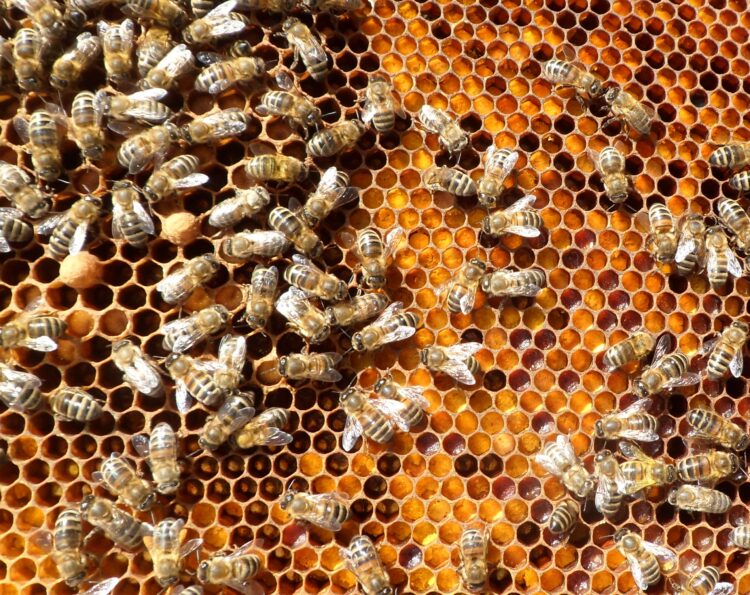 Aug. 20. Tomorrow is a celebration of honey bees.
Aug. 20. Tomorrow is a celebration of honey bees.
World Honey Bee Day on the third Saturday in August and recognizes both the honey bee and the beekeepers who tend the hives.
It also encourages everyone to enjoy and buy locally grown honey.
Another important part of the day includes learning about honey bees and providing them with a supportive environment.
This from the National Day Calendar: When we plant wildflowers, orchards, and other flowering plants, we support pollinators such as honey bees. They depend on the nectar of a variety of plants for their survival.
We depend on honeybees for our survival, too. Without their pollinating abilities, many nutritious plants wouldn’t reproduce.
Their honey is an added bonus. We enjoy it in our baking, teas, and confections.

Honey bees do sting, but only if they perceive a threat – damage to their hive or being swatted at. Since they seek sweet nectar, sugary drinks and sweets will attract honey bees when flowers are not blooming yet. So, keep your beverages covered. If a honey bee comes close, either hold still or move slowly away. The honey bee will fly along to the next sweet thing as long as it doesn’t feel threatened.
How to observe
+ Collect and spread local wildflower seeds to promote honey bee pollination.
Flavors of honey vary depending on the variety of flowers and nectar available to the bees.
Clover, alfalfa, lavender, orange, and chestnut are just a few to choose from.

+ Replace your usual sweetener with honey for the day. Taste the difference.
+ Give the gift of honey to a friend, neighbor, co-worker or family member.
Facts about bees
From Petmedia:
+ There are 3 types of bees in a colony: the queen, the workers, and the drones.
+ Bees have an exceptional sense of smell.
+ Researchers discovered a bee fossil that’s 100 million years old.
+ Bees have 5 eyes.
+ Bees use the sun to help them navigate.
+ Drone bees can’t hurt you because they don’t have a stinger.
Protected by law
In addition to federal guidelines, beekeeping and honey are covered by North Carolina state laws.
The North Carolina Honey Bee and Honey Act of 1977 authorizes the North Carolina Commissioner of Agriculture and the N.C. Board of Agriculture to promote, improve, and enhance the bee and honey industry in North Carolina, particularly relative to small beekeepers.
It also allows for the protection of the bee and honey industry from bee diseases and disorders, and it provide regulatory services for the pollination of plants, honey bee poisonings, thefts, bee management and marketing.

This 1977 law also prohibits cities and counties from enforcing any ordinance or resolution that prohibits people from owning or operating five or fewer bee hives.
The Honey Bee Act of 1922 was the first federal law pertaining to beekeeping in the United States. It has been amended several times. Its current form covers a number of issues, including importing honey bees, punishment for unlawful importation, propagating bees, and eradicating and controlling undesirable species and subspecies.

Photo: Liquor.com
Celebrate with a Stinger!
This comes from Liquor.com
Ingredients
2 ounces cognac
1 ounce white creme de menthe
Steps
Add the cognac and white crème de menthe into a mixing glass with ice and stir until well-chilled.
Strain into a rocks glass over crushed ice.





